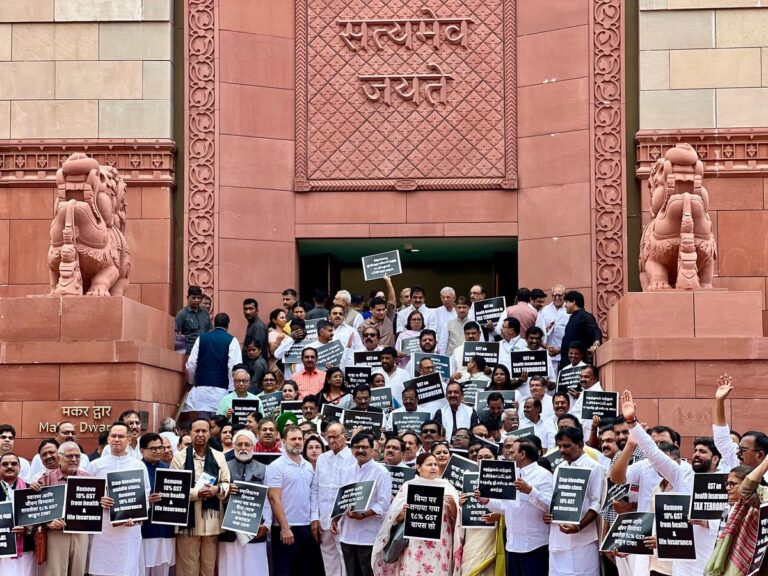🎧 Listen to This Article
A Growing Crisis in India’s Health Insurance Sector
MUMBAI – A significant number of Indians are abandoning their health insurance policies, citing escalating premiums, the imposition of Goods and Services Tax (GST), and frequent claim rejections. These factors, combined with the perception of inadequate coverage, are forcing people to reconsider their safety net. Despite government initiatives like health schemes, affordability remains a serious issue, pushing many towards alternatives such as personal savings.
The issue is no longer just about high premiums; it is about the growing sense of distrust and dissatisfaction in the system. As premiums soar and claims are repeatedly rejected, policyholders are questioning whether insurance offers the financial protection they were promised.
The Root of the Problem: Rising Costs and Claim Rejections
1. Premium Hikes: A Financial Burden
For many, the sharp increase in health insurance premiums has made coverage unsustainable. Take Subhadip Ghosh, a 38-year-old professional from Kolkata, who saw his family floater policy’s premium surge from Rs 22,000 in 2016 to Rs 78,000 in 2025, nearly quadrupling over the years. Despite paying consistently and receiving a 10% no-claim rebate, Ghosh feels the rising premiums are outpacing his ability to afford coverage.
“How many Indians can afford this?” he asks, highlighting the widening gap between income and the cost of health insurance. A similar sentiment is echoed by Srishti, a legal executive in South Delhi, who opted out of a Rs 3 lakh annual premium after her friend’s claim was rejected.
2. Claim Rejections: A Trust Crisis
The growing dissatisfaction is not just about premiums—it’s about the frustration of claims being rejected at critical moments. Rupesh Sharma, a 42-year-old IT professional from Mumbai, shares his painful experience with a comprehensive health plan. Despite being covered for Rs 10 lakh, his insurer only approved Rs 1.8 lakh of a Rs 2.5 lakh hospital bill due to fine print clauses he was unaware of. After months of follow-ups, he received a partial reimbursement for post-hospitalization costs, but the experience left him disillusioned.
For many, the sense of being overcharged for inadequate coverage is driving them away from the system. “I’ve paid over Rs 6 lakh in premiums over 10 years, and not once have I benefited from it,” says Sharma.
GST and the Double-Edged Sword
The introduction of an 18% GST on health insurance premiums has exacerbated the financial strain. Srishti, paying nearly Rs 3 lakh annually, describes the GST as “a cruel joke.” While Section 80D of the Income Tax Act offers some relief, the tax rebate is not enough to offset the soaring costs.
Experts agree that premiums have more than doubled in the past five years, especially for senior citizens. According to an insurance consultant in Ahmedabad, while the tax rebate is beneficial, it doesn’t significantly ease the burden of rising premiums for policyholders.
The Corporate Insurance Surge: A Shifting Trend
Interestingly, while individual health insurance policies are seeing a decline in renewals, corporate health insurance is gaining popularity. Companies are increasingly offering group health insurance plans, which are typically more affordable than individual policies. This trend reflects a larger shift in the market, where people are relying more on employer-provided coverage rather than personal plans.
However, even within the corporate space, the adequacy of coverage and the reliability of claims remain a concern for many employees.
Alternative Strategies: Moving Away from Traditional Insurance
In the face of rising premiums and limited coverage, many individuals are seeking alternative ways to secure their health. Some, like Varsha, a 42-year-old marketing executive from Jaipur, are shifting their savings into Systematic Investment Plans (SIPs) instead of relying on insurance. Others are tweaking their policies, opting for coverage designed specifically for senior citizens or other family members.
Yet, these alternatives come with their own set of risks. Shifting policies often involves dealing with waiting periods and exclusions, and many insurers no longer offer family floater policies for dependents over 65, which forces individuals to pay higher premiums for separate policies.
A Call for Regulatory Reform
The growing dissatisfaction with the health insurance system in India has prompted many to call for urgent reforms. Ghosh argues that the government needs to regulate hospital rates and push insurers to negotiate better prices. “Why can’t there be standardised rates for procedures? If you’re getting an angioplasty, for example, the cost should not exceed a certain amount, no matter where you go,” he suggests.
There is a clear demand for greater transparency and fairness in the system. As costs continue to rise, individuals are finding it harder to justify the value of their insurance policies, and many are left feeling that they are getting less for more.
Conclusion: The Need for Immediate Action
The growing number of people opting out of health insurance policies signals a deep-rooted problem within India’s healthcare system. While GST and rising premiums are key drivers, the lack of trust due to claim rejections and insufficient coverage are equally important issues that need addressing.
For the future, regulatory reforms are crucial. Policymakers must consider mechanisms to control healthcare costs and ensure that health insurance offers real value to the average Indian citizen. Without these changes, more people may choose to abandon the safety net that health insurance once provided, leaving them vulnerable to financial shocks in times of medical need.
For further details, clarification, contributions, or any concerns regarding this article, please contact us at editorial@tax.news. We value your feedback and are committed to providing accurate and timely information. Please note that our privacy policy will handle all inquiries



